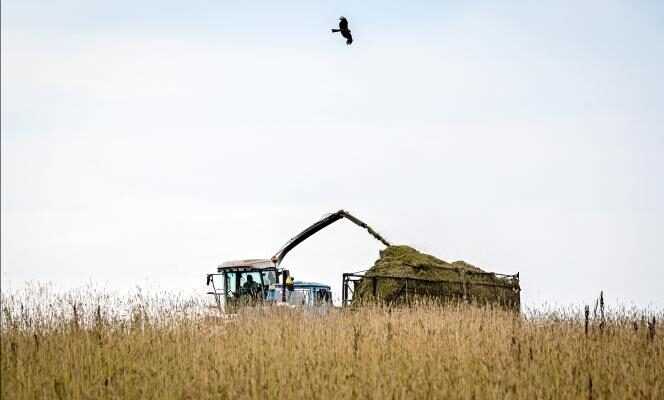Is the future of mankind somewhere deep in Yakutia (now called Sakha), one of the coldest regions in the world? More precisely in Viliouysk, a locality located an eight-hour drive from the regional capital, Yakutsk? In this place where temperatures fall in winter below the – 50 OC, we harvested for the first time, in the year 2020, wheat, barley and oats. Seventeen tons of grain in all, said Pavel Inokientev, the head of the district agriculture department, reached by phone. “For the first time, we were able to taste fully Yakut bread, he prides himself. And we send part of our flour to other regions. “ The year 2021 should be even richer, with 28 tonnes harvested and a cultivated area extended to 60 hectares.
At a time when global warming is causing anxiety on the entire planet, the “Succulent” Viliouïsk bread, even the fruit of a disproportionate investment, has enough to feed many fantasies. The district had already carried out agricultural experiments in the early 1960s, but with much more modest results. “At the time, he was doing
– 5 OC end of September, explains Mr. Inokientiev. Today [à la même époque de l’année], we are above 5 OVS. “
The Russian vision remains influenced by the idea of ”advantages” that the country can hope to gain from global warming, despite floods and fires
How many millions of hectares, how many once inhospitable regions could become the granaries of tomorrow? The question is not only strategic for Russia, which in recent years has once again become an agricultural giant. It questions the development scenarios on a global scale, for the decades to come. “Why shouldn’t global warming become the comparative advantage of Russia in the XXIe century? “, asks Alexandre Tchernokoulski, member of the Russian Academy of Sciences and researcher at the Institute of Atmospheric Physics. In 2003, Vladimir Putin put the equation in even simpler terms: “It will be two or three degrees more … It’s not dramatic, and it may even be good: we will spend less on furs. “
Since then, the position of the Russian president has certainly changed. In mid-October, in the run-up to the COP26 in Glasgow, Mr Putin even made a 180-degree turn by setting the ambitious goal – but without an action plan or intermediate objective – of a Russia achieving carbon neutrality by 2060. But the Russian vision remains influenced by the idea of ” advantages ” that the country can hope to gain from global warming. In public discourse, these are almost as present as the now routine review of extreme weather events – floods, droughts and above all massive fires (this summer, a larger area than Portugal burned in Yakutia).
You have 68.84% of this article to read. The rest is for subscribers only.
